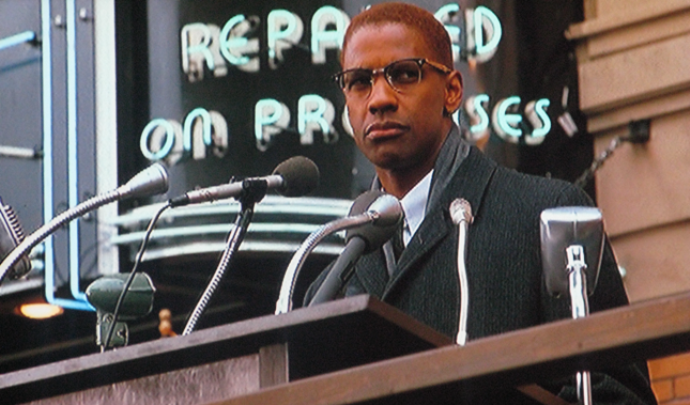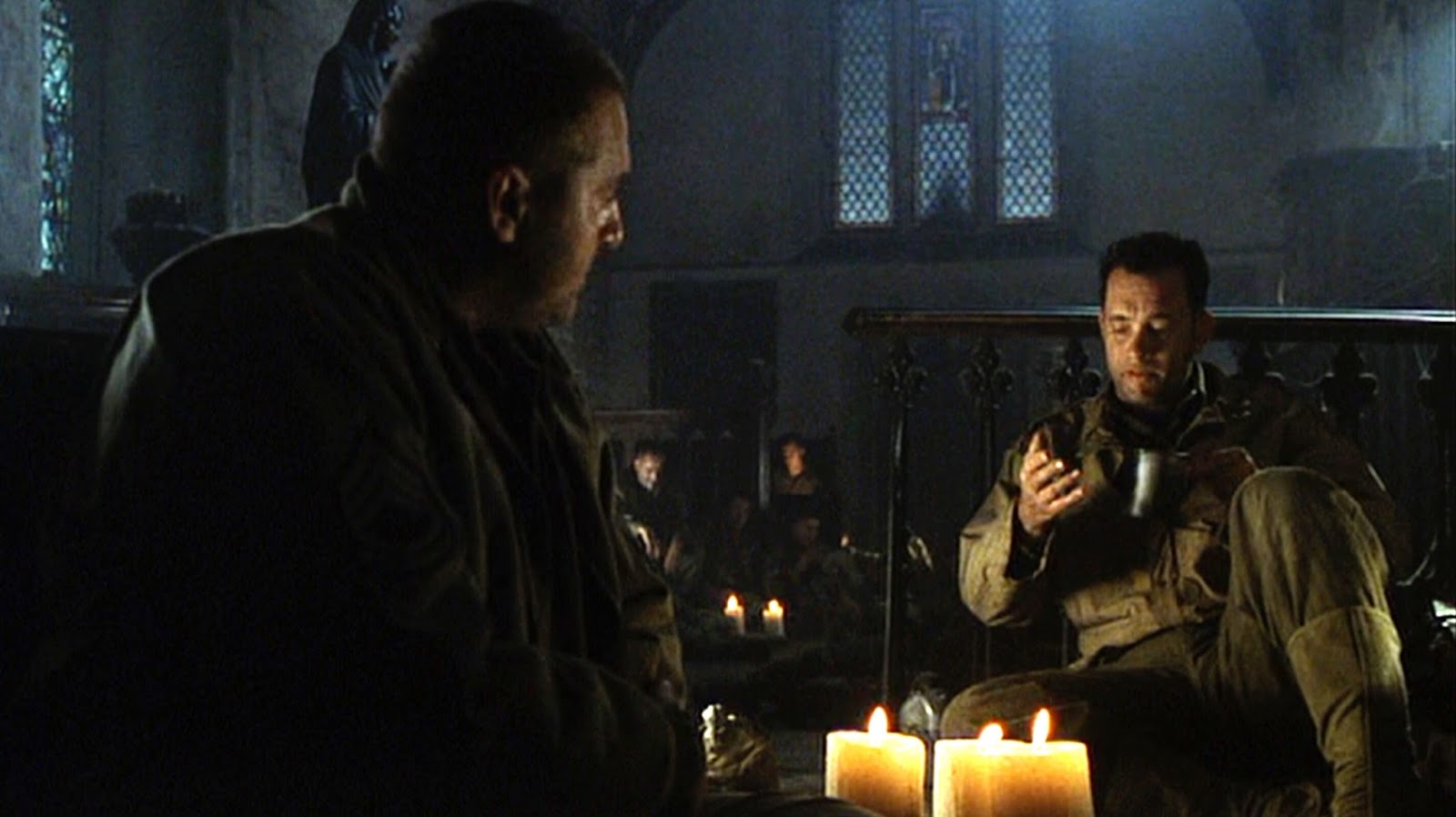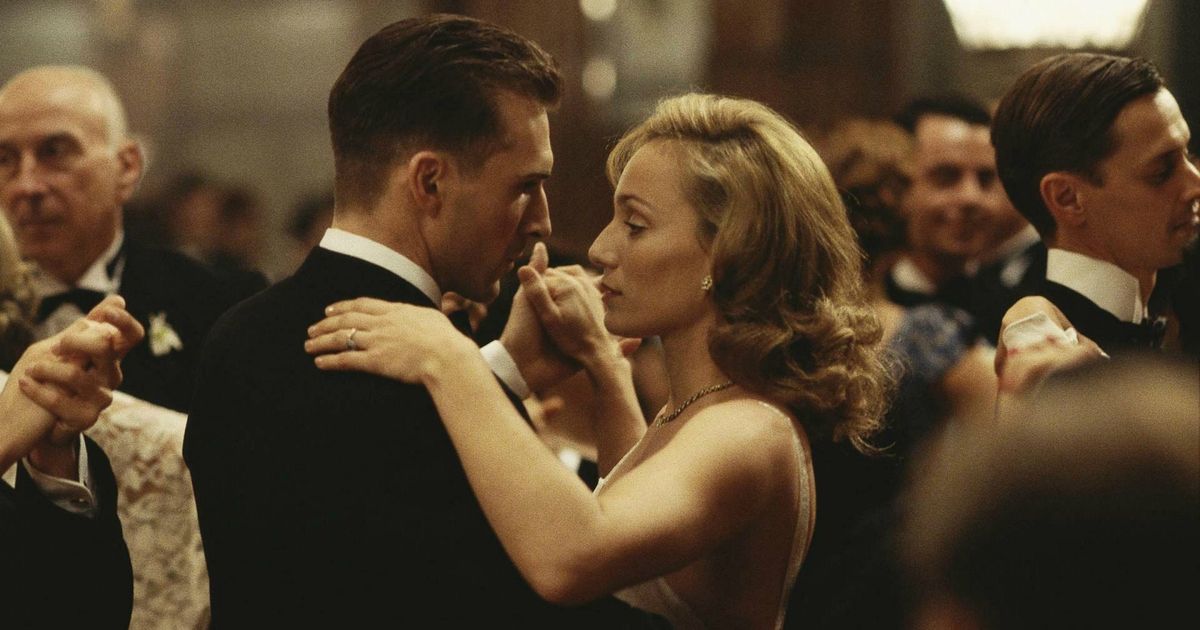Was there a better feeling in school then when you noticed the television cart in the classroom? (For those of you not old enough, back in the day before smartboards, if a teacher wanted to show a video in the classroom it meant they had to go to the library or A/V room and literally wheel a massive cart, complete with 26” or so tv and VCR, to the classroom.) It usually meant it was the day before a vacation, or maybe you’d just finished reading a book and the teacher could kill two days by showing the two hour adaptation in class. For us students it was a chance to check our brain at the door and either watch the movie or daydream. There would be no learning in the classroom that day.
When I went back to school to get my education degree not that many years ago, I made the decision that movies would be an important part of my classroom, shown to the students to supplement their learning, not just to give me a breather. When my mentor teacher showed me that I could just plug my laptop into the wall to show whatever I wanted on the smartboard, it was a thousand lights going off. Teaching To Kill a Mockingbird meant that I could show snippets of the film and then immediately cut to a video of Billie Holiday singing Strange Fruit and then show moments from the protests in Ferguson Missouri. Students could get the full context of the time and place of the works we were studying as well as tie it into current events. This would be a far cry from me writing about Boyz N the Hood and the music of Public Enemy to fill up the necessary word count in my paper on Uncle Tom’s Cabin. It made me excited to not just teach, but to learn more myself.
In school I didn’t have those options, especially when it came to Black History. Heck, I know that we didn’t do anything to recognize Black History Month when I was in school. We didn’t celebrate it, create reading lists for it, or take the time to make a big deal of it.
It’s hard for me to blame the teachers I had back then. Maine has been something like 97-98% white my entire life, and my only real interactions with black students didn’t happen until my Junior year on a trip to Washington D.C. In my home town there was one black student, and thinking back on it now I cannot imagine how he must have felt. The town’s slogan might have been “Enjoy the Spirit of a Friendly Town,” but based on the comments of some of my own family members, I knew it was racist as hell. In fact, one of the only Black History tidbits I learned about in high school was that my hometown held the first daylight march of the KKK in New England back in 1923. That meant most of our grandparents were children when that happened, so any thoughts that we didn’t have a racist history because we were part of the Union quickly faded for me. To put it simply, we were not progressive.
When it came to learning black history it seemed like we only got the abridged versions. Of course we were taught about the Civil War, the North and the South, and Lincoln’s Emancipation Proclamation. Battle dates were memorized, as were the constitutional amendments that came about after the war’s end, but most of our discussions revolved around the white generals leading the army. Had it not been for Edward Zwick’s film Glory, starring Denzel Washington, I doubt I would’ve even known the plight of black soldiers in the war.
Turns out, Dezel Washington proved to be a rather important figure in my education. As I stated before, we only got the bare minimum when it came to our education. As far as the civil rights movement, it was mostly more of the same. I remember having to memorize parts of Martin Luthor King’s “I Have a Dream” speech, but we didn’t learn about it in any real context. We knew there were marches in the south, but we never studied what it was like for anyone to walk from Selma to Birmingham and the dangers they faced. The word lynching was menitoned, but did we ever see a picture of what that looked like, or read an account of what that really meant?
We definitely didn’t learn about Malcolm X.
Despite being one of the trinity “faces” of the civil rights movement, along with Martin Luthor King and Medgar Evers (another name that was absent from the curriculum), we barely, if at all, mentioned his name or learned anything about him. There was no Malcolm X day to point to on the calendar, but thankfully a young filmmaker from Brooklyn by the name of Spike Lee was about to unleash his masterpiece on the world.
Based on the Autobiography of Malcolm X, as told to Alex Haley, the movie Malcolm X starred the aforementioned Denzel Washington as the titular man. Spanning a whopping three hours and twenty-two minutes, the film tells the encompassing tale of a young man by the name of Malcolm Little from his early childhood until his eventual assassination at the age of thirty nine on February 21, 1965. This film was not a puff piece by any means, as it covers his days in Boston where he was a thief, to his days in NYC working for a gangster by the name of West Indian Archie, to his jail time and eventual adoption into the Nation of Islam. Over the course of those three hours we see the journey of a man through self-discovery, questioning and assessing of his own life, and the changes he makes along the way to better himself. To me it seems like he was an educator’s dream come true because he had so many facets to who he was and what he believed. His life was ripe for discussion.
But we never studied him. We didn’t even watch the movie in class. So after watching Denzel’s powerhouse performance (best of his career in my opinion) I became fascinated and needed to learn everything I could about the man on my own. In those pre-internet days my choices were limited so it mostly came to procuring a copy of the book and buying myself a Malcolm X hat. There were no classroom debates, sides taken between which approach was more effective, the peaceful protests of MLK (which we now know were only peaceful on one side) or the by any means necessary rhetoric of Malcolm, or school projects. Nothing.
For the first time in my young life, I felt truly let down by my education.
I wish I could say that I continued my extra-curricular studies even further, but the truth is there were always more papers due, more tests over what was actual in the lesson plans. Could I have made time to learn more on my own? Of course, but that would’ve meant less time studying materials that I’d get tested over and I wasn’t disciplined enough back then. I wasn’t going to change how I did things in order to broaden my horizons because at that point it didn’t make any difference to my everyday life. It makes me sad to even say that. It did help me decide that when I graduated I would get the hell out of my hometown and go to a big city for college, and when I did I managed to get myself a work study job at the school library’s department of special collections where they actually housed many important works from Martin Luthor King.
It pains me now to think of everything I didn’t learn back then. I knew Black Panther as a Marvel Comics character, not as an important organization that helped change the lives of many Americans. The names of Marcus Garvey, Medgar Evers, Emmet Till, Ruben Carter, Huey Newton, Fred Hampton, or Bobby Seale, never came up in classroom discussion. We failed to learn about what happened at Rosewood in 1923, or Philadelphia in 1978, or Watts in 1965. I’m embarrassed to say I only learned about what happened in Tulsa in 1921 just a few years ago, and the majority of my knowledge was introduced by a damn television show.
Sure, we learned about Selma and Montgomery, only really in passing, and we certainly didn’t do any deep dives into Little Rock Arkansas. But we learned the definition of segregation and when the Civil Rights Act was signed by President Lyndon B Johnson.
I could go on about how my basic high school education was lacking, but instead I’m going to list the movies where you can learn about most of the events my teachers either ignored or passed over, as well as some films that cover more modern events. It might not be the comprehensive lesson plans that we all deserve to learn from, but it’s a start. In the words of Malcolm X, “I read, study, because the first thing a black man have is respect for himself.”
I’m going to honor that by continuing to learn. Hopefully after watching any of these movies you’ll be curious to seek out more information. Also, I’d love to hear any of your suggestions in the comments below.
Movies to watch:
12 Years a Slave, directed by Steve McQueen, screenplay by John Ridley, based upon the book by Soloman Northup.
Rosewood, directed by John Singleton, written by Gregory Poirier.
Amistad, directed by Steven Spielberg, written by David Franzoni
Ghosts of Mississippi, directed by Rob Reiner, written by Lewis Colick
I Am Not Your Negro, directed by Raoul Peck, written by James Baldwin
4 Little Girls, directed by Spike Lee
The Color Purple, directed by Steven Spielberg, screenplay by Menno Meyjes, based upon the book by Alice Walker.
Selma, directed by Ava DuVerney, written by Paul Webb.
13th, directed by Ava DuVernay, written by Spencer Averick and Ava DuVernay
Glory, directed by Edward Zwick, screenplay by Kevin Jarre, based on the books “Lay This Laurel” by Lincoln Kirstein and “One Gallant Rush” by Peter Burchard.
Judas and the Black Messiah, directed by Shaka King, screenplay by Will Berson and Shaka King
One Night in Miami, directed by Regina King, written by Kemp Powers
Straight Outta Compton, directed by F Gary Gray, screenplay by Jonathan Herman and Andrea Berloff
Mudbound, directed by Dee Rees, screenplay by Virgil Williams and Dee Rees, based on the book by Hillary Jordan
42, written and directed by Brian Helgeland
BlacKKKlansman, directed by Spike Lee, written by Charlie Wachtel, David Rabinowitz, Kevin Willmott, and Spike Lee, based on the book by Ron Stallworth
The Hate U Give, directed by George Tillman Jr, screenplay Audrey Wells, based on the book by Angie Thomas
The Death and Life of Marsha P Johnson, directed by David France, written by Mark Blane and David France
LA92, directed by Daniel Lindsay and T.J. Martin
Moonlight, written and directed by Barry Jenkins, story by Tarell Alvin McCraney
The Black Power Mixtape 1967-1975, written and directed by Goran Olsson


